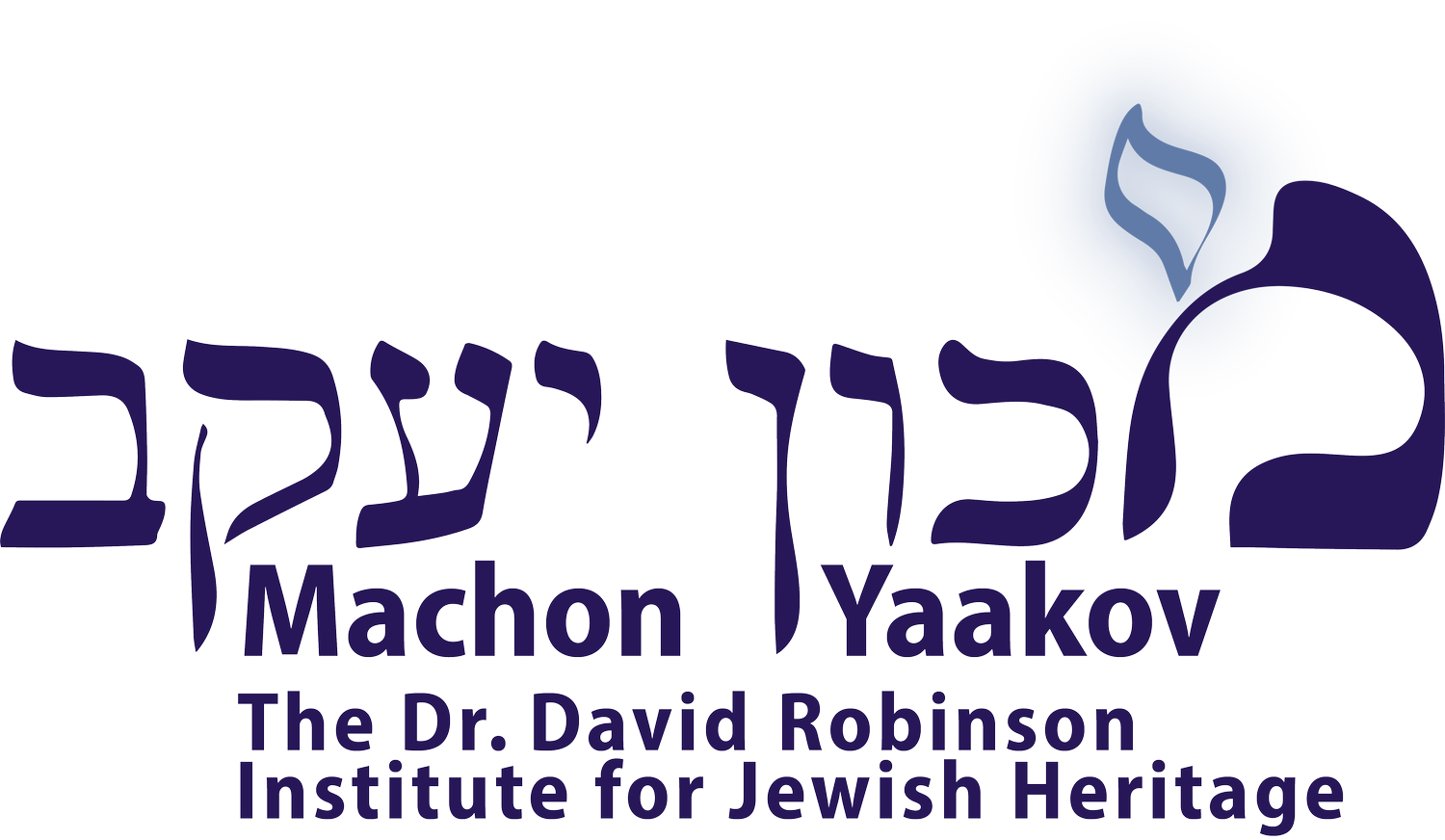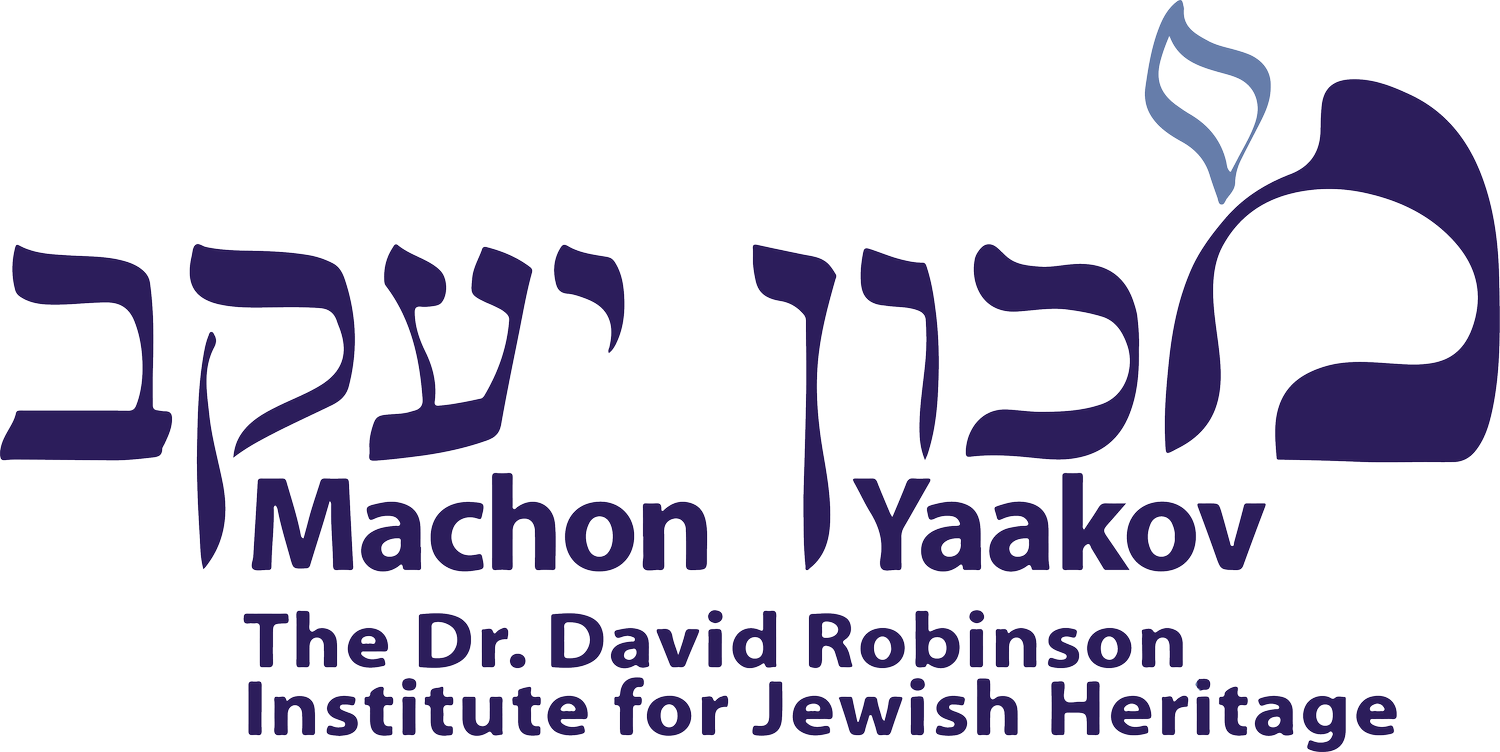ABOUT US
-
Machon Yaakov was founded in 2005 by Rabbi Beryl Gershenfeld (Rosh Yeshiva) and Rabbi Avraham Yitzchok Jacobs (Director, Senior Lecturer). Located in the Har Nof neighborhood of Jerusalem, Machon Yaakov enjoys a reputation for excellence in developing exceptional students.
Machon Yaakov accepts 15-20 post-college/young professional students per year—many of whom come from little or no Jewish background—and gives them the experience of a lifetime. The program is designed for two years, but some, due to professional needs, stay only for one. The goal is to build healthy, inspired and motivated people—who will take their new relationship with Judaism and its ancient principles and filter it back into their modern day professional and family lives.
Today Machon Yaakov has nearly 400 alumni living across the world, working in finance, medicine, tech, consulting, law, social work, education and the arts. They not only serve as leaders in their Jewish communities, but are living role models as to what the modern Jewish man can look like—a beautiful fusion of Torah wisdom and values, yet fully immersed in the 21st Century.
If you are between 20 and 30, English-speaking, disciplined and serious, curious and passionate about exploring a spiritually-centered life, and optimistic and confident enough to take a bit of time away from your academic or professional activities to immerse yourself in timeless wisdom, then Machon Yaakov may be for you.
-
Machon Yaakov is located in a fully refurbished, stand-alone villa overlooking the vast Jerusalem Forest. If you’ve ever visited the Yad Vashem museum, you can see our building from there. The 5-story villa is located in Jerusalem’s Har Nof neighborhood, an established and growing Israeli/American neighborhood. The building holds expansive and unobstructed views of the forest, valley, and outlying hills toward the North of Israel. It contains classrooms, offices, 3 floors of dormitory rooms, a large and well-lighted beit midrash (study hall), dining room & kitchen facilities, and a laundry room.
Additionally, Machon Yaakov has an outdoor, half-court basketball area, several terraces, a gym/weight room, and a large student lounge equipped with high-speed WiFi.
-
In any given year, Machon Yaakov serves 30-35 total students between the 1st and 2nd-year classes (with an incoming class of about 20).
Students are selected based on a strong desire and ability to learn and grow intellectually, spiritually, and individually.
Our typical student possesses a strong character, a passion for growth, intellectual curiosity, and a natural sense of leadership.
Although mostly from the United States, Machon Yaakov students hail from Western and Eastern Europe, South America and Australia. Fluency in English is required, as all classes are conducted in English.
Though all texts are studied in the original Hebrew and Aramaic languages, many of our students arrive with little or no background in Hebrew. A Hebrew language program is provided to bolster vocabulary and grammar. Most students make tremendous progress in reading skills within a matter of months, if not weeks, as the program is highly intensive and motivating.
The average student age is about 24, ranging from 20-30 (with exceptions made on an individual basis). The majority of students have professional and/or graduate school experience.
Machon Yaakov students represent such universities as Harvard, University of Pennsylvania, University of Chicago, Cornell, Stanford, University of Michigan, Northwestern, Cambridge, and the London School of Economics, as well as many others.
Beyond geographic diversity, our students hold a wide-range of interests as well, with backgrounds in business, finance, consulting, law, tech, medicine, the arts (with several accomplished musicians and actors), and professional sports. While some students arrive at Machon Yaakov with professional experience, others come just after university or graduate school (or after receiving deferrals from specific undergraduate or graduate programs).
Each student is encouraged to express the uniqueness he was given, with no absolute right or wrong path to growth. The vast majority of our students naturally establish themselves as professionals or academics, while a small percentage may find their calling as rabbis and teachers (see Alumni section).
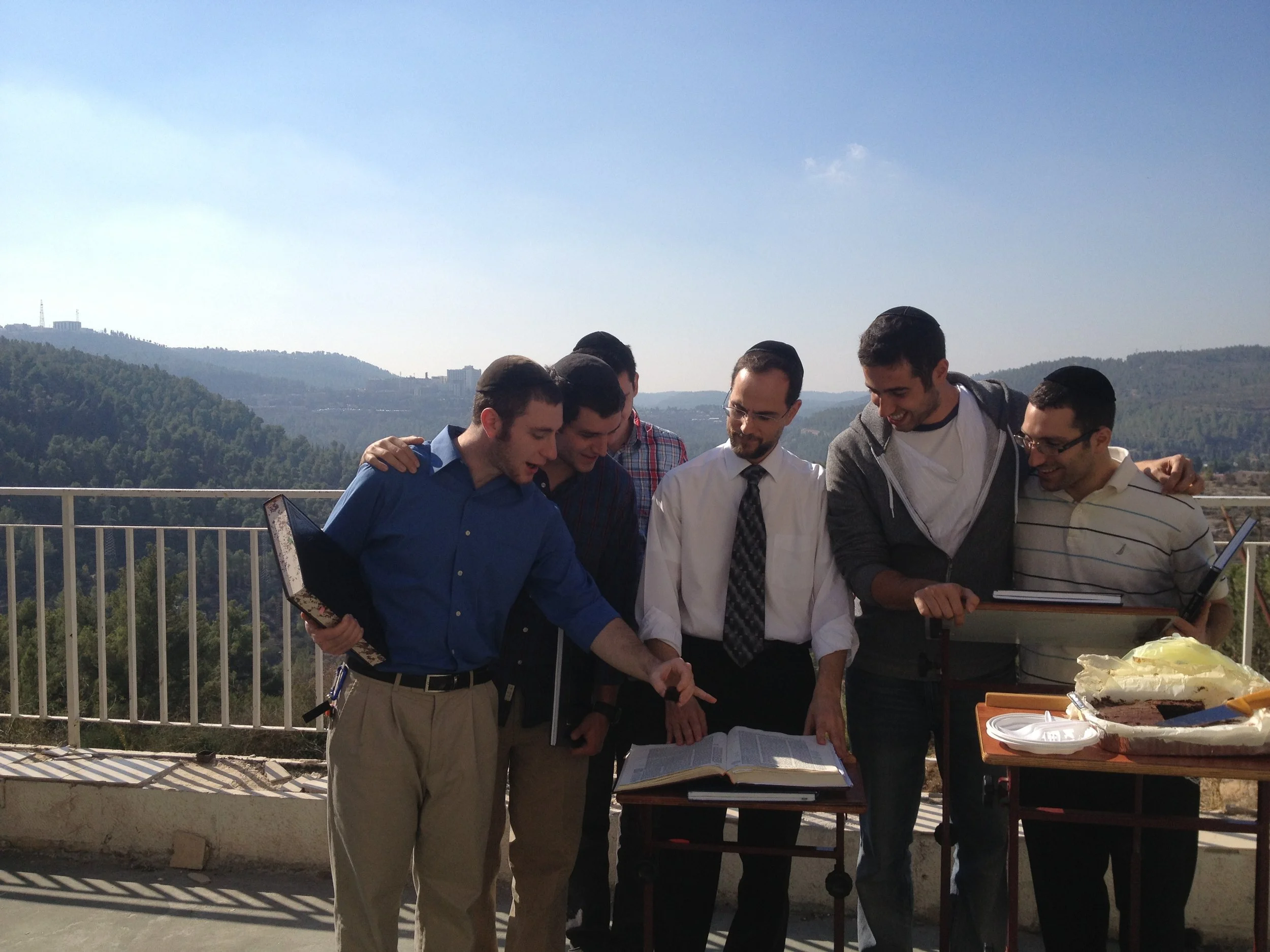
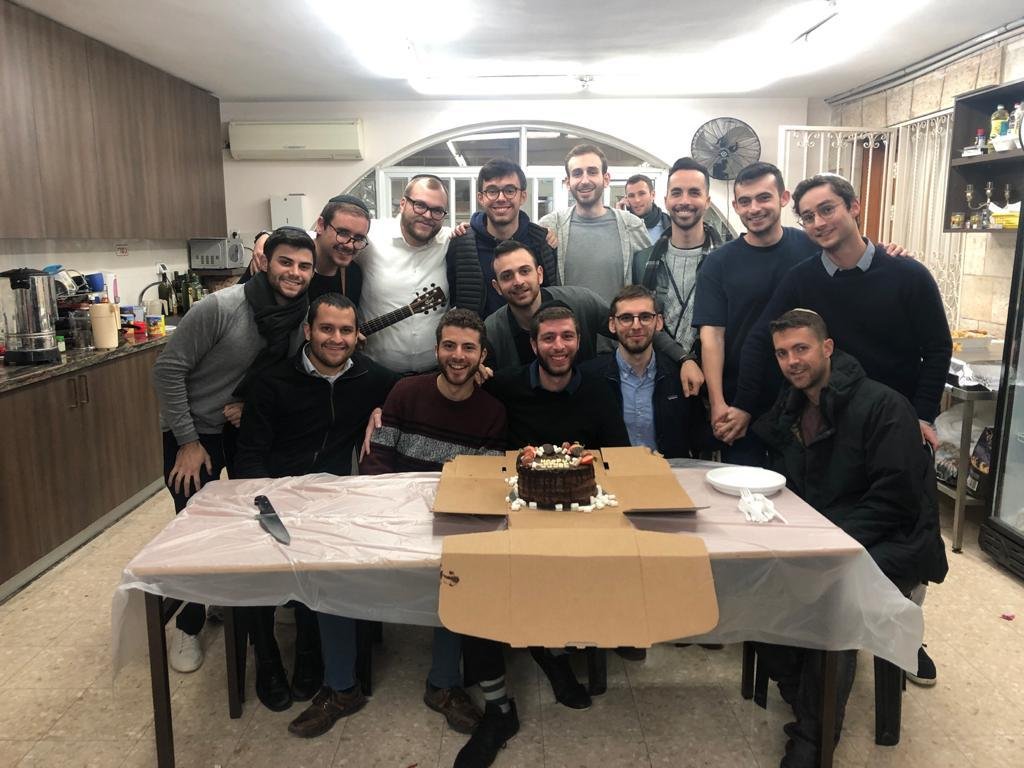
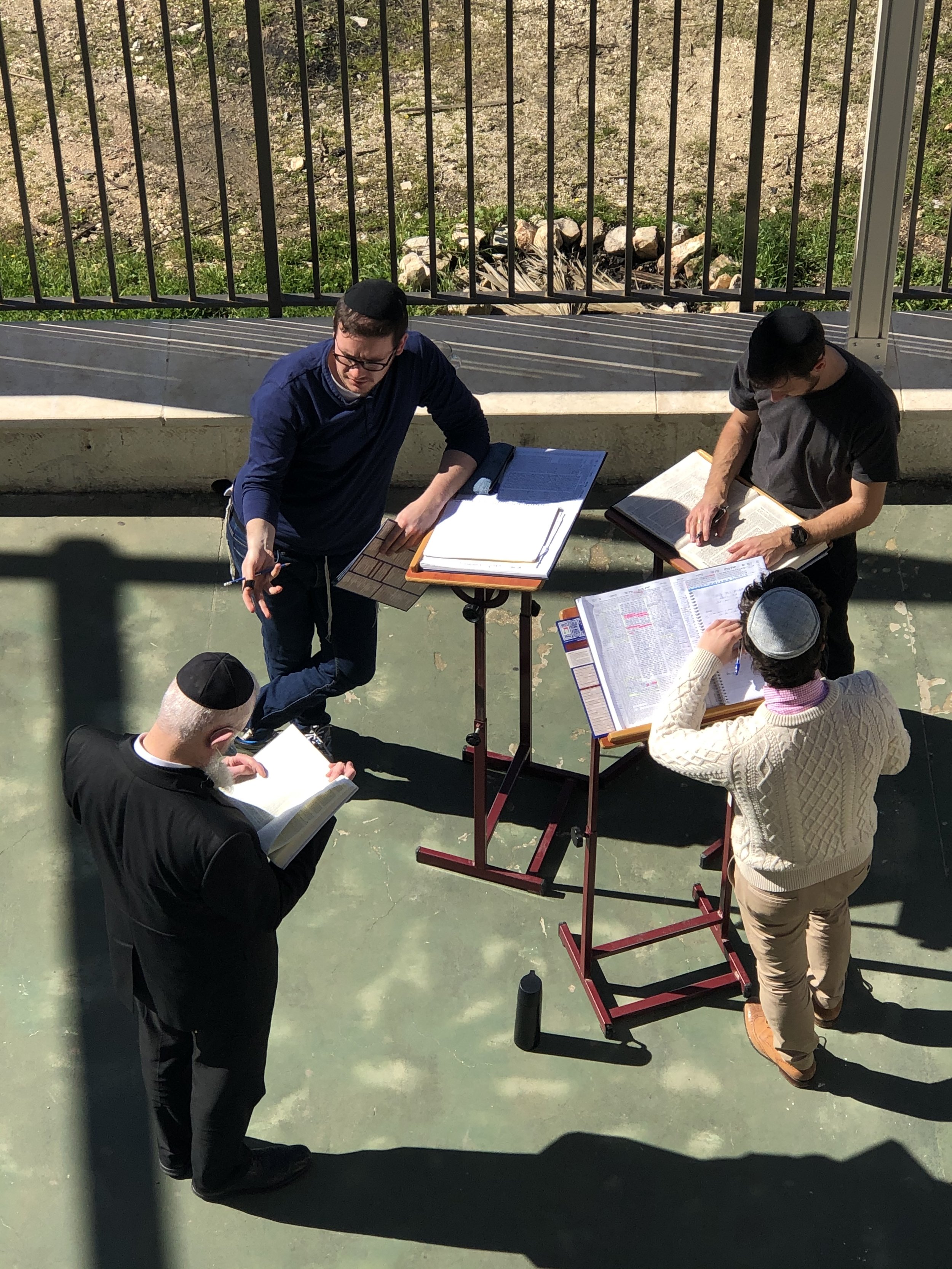
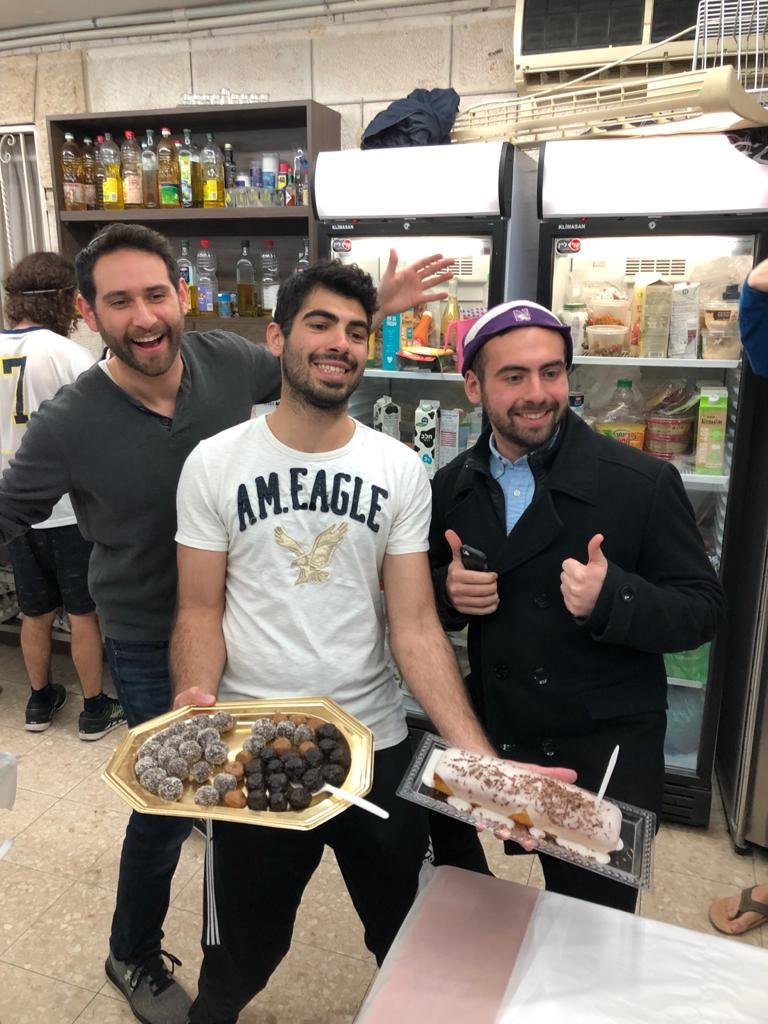
Our Program
Our academic schedule roughly follows the standard university calendar. However, as we begin about 3 weeks before Rosh Hashana and end shortly after Shavuout, the start date can be as late as mid-September or as early as mid-August, and the end date can range from mid-May to early June.
Vacation times fall during select Jewish holidays, including longer breaks before and after Succot in the Fall, during Pesach in the Spring, a shorter break over Chanukah as well as a mid-winter long weekend. Many students choose to travel during these times off.
Our class schedule is broad and intensive, containing significant exposure to Talmudic analysis, Jewish philosophy, Jewish Law (Halacha), Hebrew language skills, ethics and character development (with significant one-on-one counseling from several senior staff members).
-
The Gemara (oral law) contains teachings passed down by the Rabbis in the centuries following the destruction of the Second Temple, and forms the core of what has come to be known as Torah-centric or Orthodox Judaism. The most widely-studied of these rabbinic teachings are known collectively as the Talmud, which has two parts: Mishna and Gemara. The daily morning program is generally comprised of three parts: preparation (in which the students are given any necessary vocabulary or grammar in the day’s lesson), chevrusa time (see below) in which the students work through the assigned material, and an interactive lecture.
Students are assigned initial first-year Gemara classes based upon Hebrew skills, and often change classes over the course of the year. No pre-existing Hebrew skills are required or expected. All 3 Gemara classes aim to build textual and reading skills, as well as analytical depth, precision and understanding. Every Thursday, the first hour of class time is given over to a Skills & Reading Review period. The second year Gemara program aims to dramatically expand and deepen the understanding of the Gemara, leading to proficiency and independence. In addition to the morning Gemara program, there is an afternoon program for the entire second year class that goes at a faster pace in a different tractate, with each separate chapter focused on the acquisition of separate tools and skills. Second-year students are also expected to spend about 90 minutes at night on preparation and review related to the morning program.
-
The Chumash are the five books of the Written Torah. This is a central class where students derive a relevant, deep, as well as broad perspective on how Torah thinking develops an individual, the community, and society. Rabbi Shlomo Itzhaki – or “Rashi” as he is more commonly known – was a French Rabbi during the Medieval period. He is the author of a comprehensive commentary on the Chumash, as well as the Talmud. The daily “Chumash with Rashi” class provides students with the tools to analyze and appreciate the Torah portion of the week. The study of Rashi’s commentary, with its focus on clarity in the the text, provides a jumping-off point to a fuller understanding of the depths and complexities of Chumash.
-
Rabbi Moshe Chaim Luzzatto is best known for his classical work, Mesilas Yesharim (Path of the Just). The book is lays out a rich step-by-step process of character development leading ultimately towards the perfection of the self. Within each step, Rabbi Luzzatto explains the step itself, its elements, and how it can be acquired, and he provides students with an insightful journey of introspection and character development.
-
The word “Halacha” is usually translated as “Jewish Law,” although a more literal translation might be “the path that one walks.” The Halacha shiur gives students an insight and a deeper understanding of the Jewish laws and customs surrounding daily life and holidays. Students derive much of the technical overview of the laws in an English text provided by the yeshiva. This allows the class to focus on deeper philosophy and reasoning underlying the mitzvot.
-
This class explores a range of topics that includes the holidays, Shabbat, and other fundamental concepts in Jewish life and thinking.
-
Every day the students at Machon Yaakov learn directly from the primary Hebrew texts. The textual skills class gives a student with zero previous background in Hebrew the ability to read, translate and access a text that was at one time incomprehensible.
-
A rotation of senior Machon Yaakov rabbis and regular guest lecturers, generally for two weeks at a time, that covers a range of topics from ethics, Jewish philosophy, in-depth work on character traits and tefilah (prayer).
-
Each student has an opportunity for tutoring on a one-on-one basis with one of three Rabbis at the yeshiva – a valuable opportunity to practice reading and translation skills, or to discuss a challenging section of Gemara from the morning.
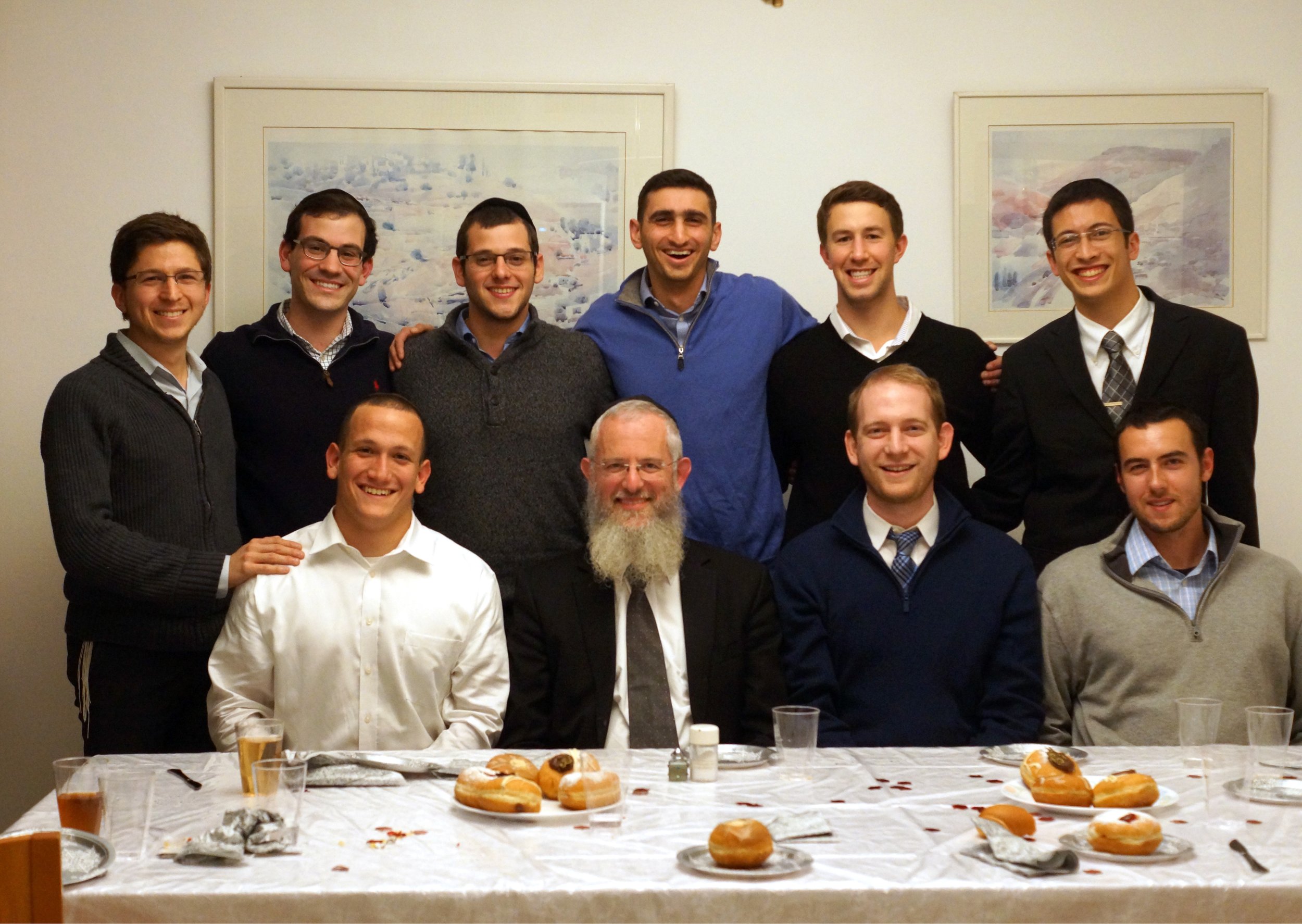

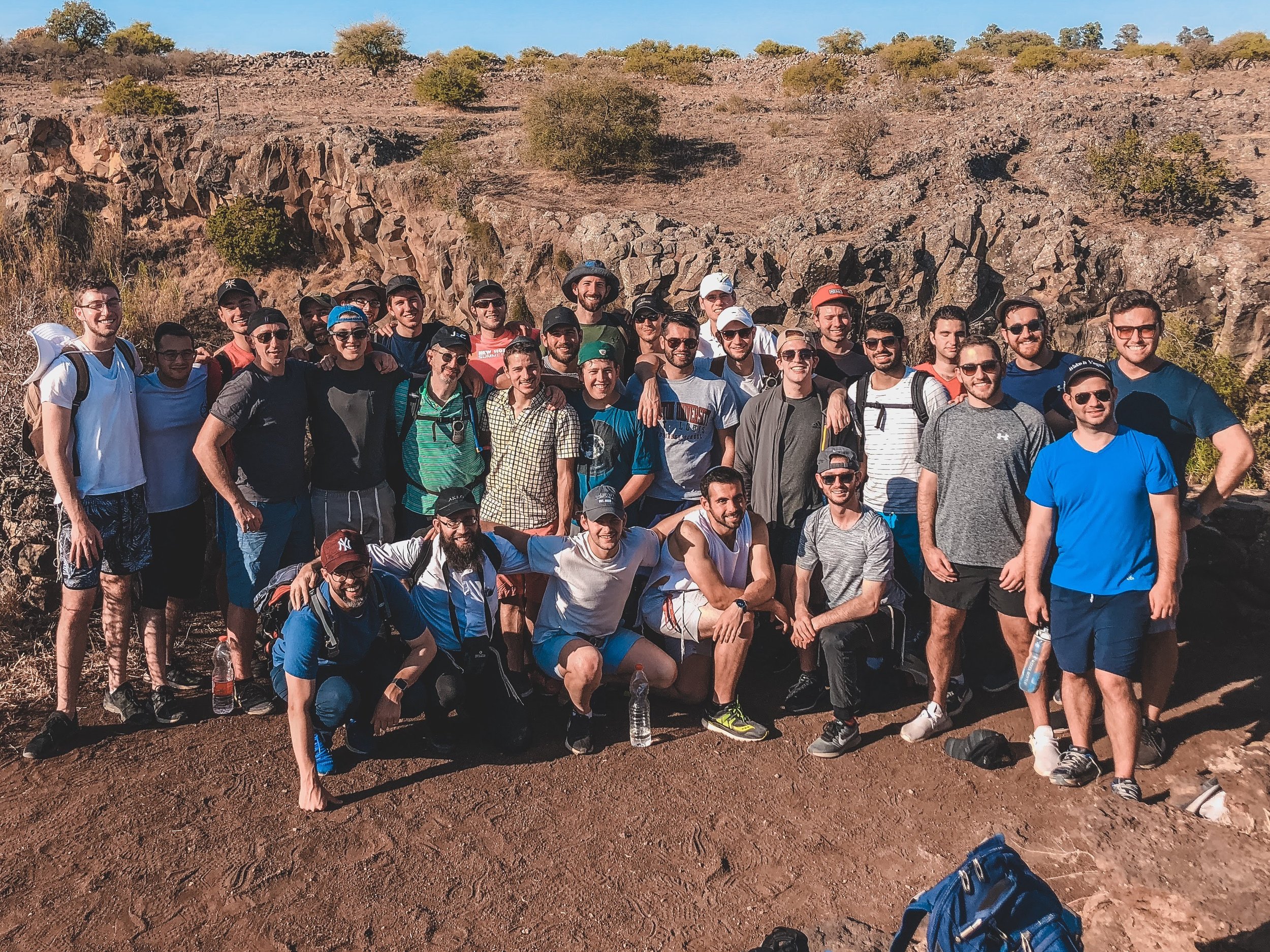
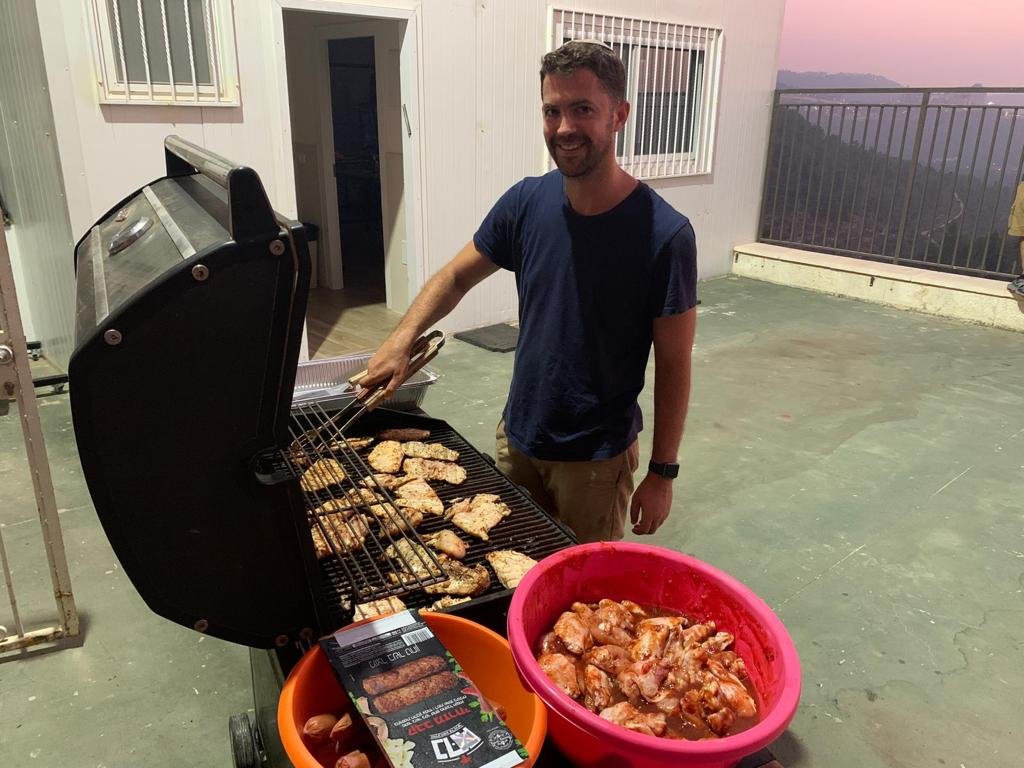
Tuition & Costs
-
The cost of the program is $22,000 a year. This amount includes tuition, room, and board. There is an additional charge of $500 annually to cover outside yeshiva events and travel (such as our annual trip to the Golan, hiking trips to Ein Gedi and around the Mediterranean, as well as numerous other group activities).
Additional expenses incurred by students include round-trip air-fare (though we can often help students find stipends to help defray that cost), medical insurance, primary books ($50-$100), laundry, and spending money. Students wishing to utilize internet access are charged nominal annual fees.
-
Students wishing to apply for financial aid should please email Rabbi Jacobs.
Financial aid is provided through philanthropists and donors, many of whom are alumni of the yeshiva itself. Any student receiving financial aid is expected to make a strong moral commitment that he will repay the tuition assistance post-yeshiva in order to provide similar opportunities for students with financial needs in the future.
